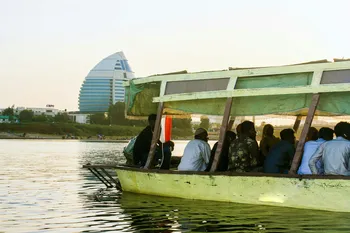
Background on the IDA
The International Development Association, part of the World Bank Group, is a crucial financial institution that provides concessional loans and grants to the world's poorest countries. Established in 1960, the IDA aims to reduce poverty by offering affordable development financing to nations that lack access to commercial credit. Its funding has historically supported projects that improve education, health, infrastructure, and economic development in the most vulnerable regions, including many Pacific Island nations.
As of now, the IDA is preparing for its 21st replenishment (IDA21), which is set to conclude in December 2024. This replenishment process involves extensive consultations with civil society and stakeholders across various regions, including the East Asia and Pacific area, where the needs are particularly pressing.
Current Challenges in the Pacific Islands
Pacific Island countries face formidable development challenges that hinder their growth and stability:
- Climate Change: The Pacific Islands are among the most vulnerable to climate change, experiencing rising sea levels, extreme weather events, and environmental degradation. These challenges threaten not only livelihoods but also the very existence of some island nations.
- Youth Unemployment: With a significant portion of the population under 23, the region is experiencing a "youth bulge" that exacerbates unemployment and social unrest. The lack of job opportunities and educational resources puts immense pressure on social services and governance structures.
- Governance Issues: Poor governance and corruption have been persistent problems in the region, undermining economic performance and the effectiveness of aid. Many Pacific Island nations struggle with political instability, which complicates development efforts.
- Geopolitical Tensions: Increasing geostrategic competition, particularly between China and Western nations, has added another layer of complexity. The recent security agreement between China and the Solomon Islands raised alarms in Australia and the US, highlighting the need for Pacific nations to navigate these tensions carefully while securing their own development priorities.
Opportunities for Action
The call for replenishment of the IDA presents several opportunities for Pacific Island leaders and their international partners:
- Strengthening Partnerships: Leaders emphasize the need for genuine partnerships that prioritize the needs and aspirations of Pacific Island nations. This includes moving beyond mere financial aid to fostering collaborative efforts that empower local communities and governments.
- Investment in Climate Resilience: Enhanced funding from the IDA could be directed towards climate adaptation and resilience projects, which are critical for the survival of many Pacific Island nations. This includes investments in sustainable infrastructure, renewable energy, and disaster preparedness.
- Focus on Youth Development: Addressing the challenges posed by the youth bulge requires targeted investments in education and job creation. The IDA's support could help develop vocational training programs and entrepreneurship initiatives that provide young people with the skills needed for the modern economy.
- Promoting Good Governance: International partners can play a pivotal role in promoting good governance practices. This includes supporting anti-corruption measures and ensuring that aid is not misused, thereby fostering a more conducive environment for investment and development.
Specific Actions Proposed by Pacific Island Leaders
- Increased Access to Concessional Finance
Pacific leaders are advocating for enhanced access to concessional financing, which includes grants and low-interest loans that can significantly alleviate the financial burdens faced by their countries. This is particularly crucial as many Pacific Island nations struggle with limited resources and high vulnerability to climate change impacts. - Commitment to Climate-Related Financing
In their joint statement, the leaders endorsed the World Bank Group's ambition to allocate 45% of its financing towards climate-related activities. This commitment is vital for supporting projects that enhance resilience against climate change, which is a pressing issue for Pacific nations that are on the frontline of environmental degradation and natural disasters. - Support for the 2050 Strategy for the Blue Pacific Continent
The Pacific Islands Forum’s 2050 Strategy outlines a vision for a resilient and prosperous future, focusing on climate, connectivity, and job creation. Leaders emphasized that IDA's concessional financing and expertise are essential for implementing this strategy and achieving collective goals in the region. - Building Infrastructure and Disaster Resilience
Pacific leaders highlighted the need for IDA support in improving infrastructure and disaster resilience. Investments in these areas are crucial for enhancing connectivity and economic opportunities, especially in geographically isolated regions. - Strengthening Partnerships with the World Bank
Leaders expressed a desire to strengthen their partnership with the World Bank Group, focusing on collaborative efforts that prioritize the needs and aspirations of Pacific nations. This includes ensuring that aid is effectively utilized and aligned with local development priorities.6. Recognition of Global Economic ChallengesWhile urging for increased support, Pacific leaders acknowledged the global economic headwinds affecting many IDA donors. They called on these nations to recognize the pressing needs of vulnerable countries, echoing similar calls made by African leaders at recent summits.
The call from Pacific Island leaders for bold action to replenish the IDA is a clarion call for the international community to recognize and respond to the unique challenges faced by these nations. By addressing the pressing issues of climate change, youth unemployment, and governance, the IDA can play a transformative role in the sustainable development of the Pacific Islands. As the replenishment process unfolds, it is crucial that the voices of Pacific leaders are heard and that their needs are prioritized in global development agendas.







